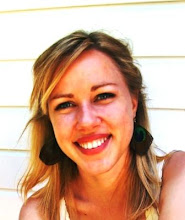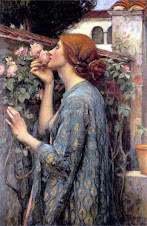When mentioning David Conrad Thoner to a stranger, I speak with succint, clinical precision about "my father" and "his long illness", I suppose to spare them the embarrassment of expressing appropriate sympathy, or to spare myself the vulnerability of grief. It's just as well. Some pains are too intimate for everyday wear.
But in the ocassional moderated reference to "my father," God forbid that I should forget when I called him Dad, or Daddy. There is a tremor in the last. Father is a word that establishes hierarchy, a word or lineage and distance, a parlor word. Dad is a word at once careful and casual, neither too intimate nor too removed, a word that I could say over my shoulder walking out the door. But daddy. Daddy is a word for a dependent child, a word of dangerous vulnerability, and trust, that if it were not so joyful, would be terrifying indeed.
This is a daddy story.
No one could ever accuse me of patience, especially when it comes to giving gifts, and more so when I made the gift, and still more when the gift is for someone I love. When I was ten years old, I took a piece of thick, fibrous paper from the art shelf at the bottom of the linen closet, the kind of paper that traps a water bead. Hunched at the dining room table, I painted with water colors for a full day until I had a group of ducks swimming in a marsh. I decided to give it to Mommy for her birthday and Mother's day, which usually fall within a few days of each other. (I had done dioramas for the last several holidays, and it seemed like it was time to make a change.)
All it needed was a frame. I went into the garage where I knew I could find some wood scraps, odds and ends left over from my daddy's construction projects.That and a fingerful of Elmer's woodglue were all I needed. The pieces I found were the wrong size. They wouldn't fit together properly without additional cutting. Undaunted, I grabbed a pencil and a handsaw, made a few marks, and set to work. I moved the saw back and forth, listening to it whine like an asthma attack while I struggled to reposition my grip on the sweaty handle. I barely made a fleck of sawdust. The concrete floor of the garage bore into my shins and the tops of my bare feet.
Daddy's silhouette, battered thumbs, longs arms balanced on the meat on his shoulders, blokced the side door of the garage.
The whining stopped.
"What are you doing?"
Silent, I consider the fold of his sinewy arms, choosing the details to win his sympathy.
"Making a frame. For Mommy's birthday presence."
The whining starts again. I look down at the crooked pink pencil mark and clamp my fingers over the wood, holding it down as if it were an enemy to be strangled.
"I can help you. There's a better way to do this."
I bristled. I liked my solitude, my resourcefulness, my struggle. I liked him at an appropriate distance. But on this occasion he persisted. He took the saw from me. He laid aside the wood glue. He admired the ducks. I remember to this day the tone of his voice while he praised them and studied them, as though it were a map of some new star. He put me in the car and drove me the arts and crafts store. He led me to the back where a woman in a dark blue smock presided over lustrous right angles of picture frame samples. I would have wanted one of the ornate frames, dripping with gold spray paint and fake antique finishing, but they looked expensive, and I had an old woman's abhorrence of spending money. Besides, the ducks, biological innovations all, would have been overwhelmed by so much gilded melodrama. In the end, Daddy helped me pick an off-white matting and a dark mahogany-colored frame, as thick as my Daddy's thumb, flattened out by errant hammer blows. Behind the glass, behind the matting, my ducks looked calmer, more sure of their pedigree. I was so immensely pleased that, although it was the 7th of March, and not thr 13th of May, I only held out for three days before begging Mommy to open the present and let us both enjoy my warmth and pleasure in giving the gift.
I forgot about that story, the trivial chapter of domestic history, for over 10 years. But of a sudden it returned like a road unexpectedly looping back on itself. When I thought of it, I also thought about The Hiding Place. I have read the covers off of two paperback copies. In the early chapters, Corrie Ten Boom remembers anecdotes from her girlhood, little matters, unremarkable exchanges with her father, that proved themselves parable and prophecy as her life unfolded. My Daddy was no "Grand Old Man of Harlem," like Corrie's elderly watchmaker papa. But as soon as the memory was given back to me, its parable announced itself, as if to say, "Nothing is wasted, lost or forgotten!"
The meaning, if I may claim it, was this: We are works of art, you and I, innovations in the sphere, unprecedented acts of the Godhead, and we are meant as love gifts for the Creator. However smudged the imago dei, we sense its presence, and we struggle to frame it. Well, we have these scraps, we say. They are not quite at the right angle, and the grains do not match, but we set to work, industriously sawing away to frame our lives with some of the elegance and glory that our spirits insist we were born to reflect. And then Daddy comes in. We wish him distant (hardly Daddy) but not too distant (not quite father). We want Dad, benevolent, consoling, malleable. But in he comes, with a tender disregard for all we thought he was going to do for us, tossing away the scraps we have labored over to such ill effect, rubbing the dried glue from our spent fingers, and imploring us to let him help, to let him frame the life he formed, the better to offset it beauty, to underline the its dignity.
Beloved, let us be framed.
All Clear!
-
Of all the memories, experiences and things I brought back from Uganda, I
have managed not to bring Malaria with me. I was so happy I had to share it
with ...
16 years ago






1 comment:
Oh my.
You are talking right into my life right now. You have no idea.
Thank you for visiting my blog, but thank you much more for telling me about yours!
Post a Comment